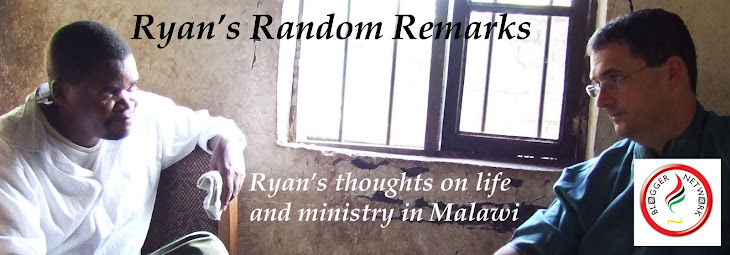This is part of a series of posts that interact with issues that will be discussed at the Lausanne meeting that will be taking place in Cape Town, South Africa October 16 to 25. Join in the discussions at conversation.lausanne.org
This is a reflection on the paper Truth Matters, Stand Up for Truth
An African Perspective of Truth
Contemporary discussions about truth tend to focus on truth from a western perspective. The discussions usually focus on the Modern view of truth over against a Post-modern view of truth. Other world views are either not considered or neglected. The global dominance of western culture as well as the fact that some world views have not articulated their perspectives means that other voices are not heard.
Joe Kapolyo in his book, The Human Condition: Christian Perspectives Through Africa Eyes (Inter-Varsity Press, 2005) gives some insight into the world view of the Bemba (a people group largely based in Zambia) and their view of truth.
Western philosophy since the Enlightenment has generally conceptualized truth in absolute terms but divorced from any metaphysical ideas or notions. This conception of truth has drawn a sharp distinction between facts and values. Facts are objectively true, while values are a matter for personal opinion. …
Science assumes enormous prestige in this privileging of its form of knowledge over biblical revelation. Scientific truth has its basis in observation but observation has its limitations. A chicken observing the farmer putting down food in its feeding trough assumes, on the basis of observation that the farmer puts down the food in order to feed it. This is true but it is not the whole truth. The chicken has no way of knowing the financial and economic strategies behind the farmer’s actions! But in general it is observation that gives the Western concept of truth the quality of timelessness or contextual autonomy. As a consequence Western culture has basically rejected the metaphysical world as true on account that such notions and concepts are not verifiable. Their ‘truth’ must be virtual rather than absolute. In line with this, a statement is deemed to be true if there is a verifiable corresponding fact or reality behind it. It is false if no such corresponding fact or reality exists. This conceptualization of truth puts Western attitudes in sharp contrast to those of other cultures like that of the Bemba.
For most, if not all African cultures, ‘Criteria of truth and value are socially, not internally, generated and applied; responsibility is communal, not conscientious, and public shame, not guilty self, is the penalty for moral contravention’ (Maxwell 1983:24) When the need to tell the ‘truth’ conflicts with a greater value (i.e. the demand to protect one’s ‘good image’ or defend a close relative) it is appropriate to tell lies. However, although everyone acknowledges the lies as lies, the person who told them to protect his kin or his ‘good image’ will generally be upheld in the community as truthful. This often brings much biblical teaching into conflict with culture. (p.139-140)
Joe compares the Bemba view of truth with a traditional Modern view of truth, but does not compare it to Postmodernism. Pure Postmodernism does not recognize absolute truth and emphasizes the views of the individual. Truth is determined by the individual and may be based on individual views of reality, beliefs, perspectives etc. This contrasts the Bemba view of truth, where it is determined by the community.
Knowing that our view of truth, be it Modern, Postmodern or Bemba is deeply impacted by our cultures and is flawed, we need to seek out a biblical view of truth. I don’t see this issue addressed inYu’s paper. A biblical understanding would need to not only consider the relevant texts, but also take into consideration how the biblical authors understood truth in their cultural contexts.


No comments:
Post a Comment